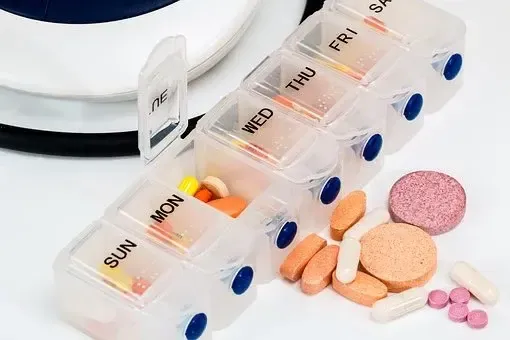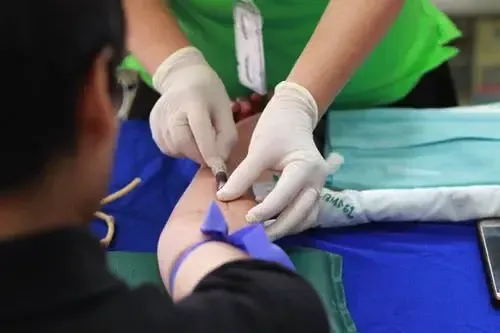Ad Code
Translate
List of 6,000+ Dofollow Commentluv Blogs FREE (Updated 2025)
January 16, 2025
What is Ozempic (semaglutide)? (Updated in 2025)
January 30, 2025
How To Find Suitable Properties In Cyprus? (Updated in 2025)
January 11, 2025
Smart strategies for trading on crypto exchanges
February 18, 2025
Medications and Things to Know About Blood Pressure
Khabza Mkhize
January 28, 2020
High blood pressure, or hypertension, is a common disease of the circulatory system, well known to medical professionals as “the silent killer”. This is because, in many individuals, it presents no symptoms and the patient may go many years without even knowing they have it. This is why these days, one of the first things clinicians check at the triage when you visit a health facility is your blood pressure levels.
While high blood pressure itself has no known absolute cure, a hypertensive person can live a normal life by being watchful of their blood pressure levels and taking hypertension medication. In cases where HBP is caused by an underlying condition, it can be cured completely using high blood pressure medication while treating the underlying condition. This is because, even secondary hypertension requires proper management, considering the many health complications HBP can cause if left unchecked. Additionally, since HBP is a medical condition that affects many people worldwide, and literally everyone is at risk, it’s advisable to have at least some basic information about it.
Well, here are some things you should know about high blood pressure and medications used to treat it.
What is HBP? The numbers
HBP is basically when the force of blood through your vessels is higher than normal. You can only know if you have high blood pressure by getting checked at a recognized medical facility. As for the numbers, blood pressure is expressed in millimeters of mercury (mm HG) using two variables in a number that looks like a fraction. These are:
- Systolic blood pressure – the upper number
- Diastolic blood pressure – the lower number
Normal blood pressure is when these two numbers are 120/80 or below. (The fraction sign is often omitted). High blood pressure is present when the systolic blood pressure is more than 120, often advanced if the diastolic number is more than 80. Depending on how high these numbers are, HBP can fall under 4 main categories as follows:
Types of Blood Pressure
- Elevated Blood Pressure --- 120 – 129 systolic
- Hypertension Stage I --- 130 – 139 systolic or 80-89 diastolic
- Hypertension Stage II --- 140 and above systolic or 90 and above diastolic
- Hypertensive Crisis --- above 180 systolic or above 120 diastolic
When your readings at the triage fall under the last two categories, your health practitioner may recommend you get admitted for further monitoring and treatment.
Medication
Medication is the most common and most effective approach used in treating HBP. Often, doctors prescribe a combination of drugs when treating hypertension, depending on the severity of the condition and the patient’s overall health. Some of the most common classes of HBP drugs include ace inhibitors, diuretics, beta-blockers, calcium channel blockers, vasodilators, and antihypertensive drugs, just to name a few. Before you start taking any high blood pressure drugs, it is best to consult with your doctor for a prescription. You will also need to be extremely careful and adherent to the recommended dosage since managing or even reversing the condition will largely depend on how well you take your meds.
Also, it is worth noting that high blood pressure may be a life-long condition. This means that you may have to take HBP drugs for the rest of your life to keep your blood pressure at optimal levels. Sometimes even when taking HBP drugs, HBP patients are provided with blood pressure monitoring devices so they can seek immediate medical intervention if their blood pressure levels skyrocket for one reason or the other. This is because, as mentioned earlier, even the highest blood pressure levels may not present any symptoms. With regular monitoring, the patient can prevent some of the health threats associated with HBP.
Preventing HBP
While primary HBP doesn’t have a definite or specific cause, there are many known causes of secondary high blood pressure. All the same, there are various things you can do to prevent suffering from the ‘silent killer’ disease, including making healthier lifestyle choices.
Some things you can do to prevent HBP include:
- Make healthier food choices
- Exercise regularly
- Avoid taking too much salt
- Avoid too much alcohol and tobacco
- Find ways to better manage stress and anxiety
- Get checked and treated for chronic conditions like diabetes, sleep apnea, and kidney disease
Finally, if you have high blood pressure, it’s not a death sentence for you… you still have so much to live for. You only have to adhere to your hypertension treatment plan and you can enjoy life like any other person. After all, millions of people have HBP but they don’t even know it. This means that if you know you have it, you’re many times better since you’ll keep it in control and avoid suffering from the health complications associated with it.
Featured Post
12 Prominent new technologies and trends emerging in 2025
Khabza Mkhize-
April 02, 2025
Soapie Teasers
Sister Sites
Most Popular
List of 6,000+ Dofollow Commentluv Blogs FREE (Updated 2025)
January 16, 2025
Smart strategies for trading on crypto exchanges
February 18, 2025
Popular posts
List of 6,000+ Dofollow Commentluv Blogs FREE (Updated 2025)
January 16, 2025
Smart strategies for trading on crypto exchanges
February 18, 2025
Footer Menu Widget
Created By Blogspot Theme | Distributed By Gooyaabi Templates




0 Comments